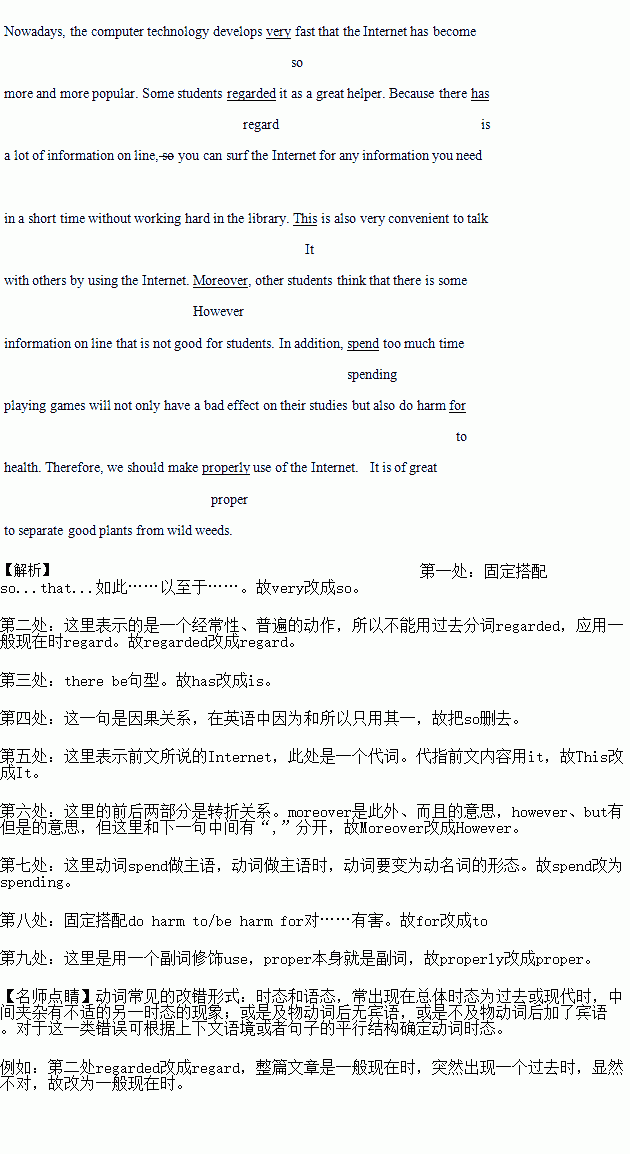题目内容
假定英语课上老师要求同桌之间交换修改作文,请你修改你同桌写的以下作文。文中共有10处语言错误,每句中最多有两处。每处错误仅涉及一个单词的增加、删除或修改。
增加:在缺词处加一个漏字符号(∧),并在其下面写出该加的词。
删除:把多余的词用斜线(﹨)划掉。
修改:在错的词下划一横线,并在该词下面写出修改后的词。
注意:1.每处错误及其修改均仅限一词;
2.只允许修改10处,多者(从第11处起)不计分。
Nowadays, the computer technology develops very fast that the Internet has become more and more popular. Some students regarded it as a great helper. Because there has a lot of information on line, so you can surf the Internet for any information you need in a short time without working hard in the library. This is also very convenient to talk with others by using the Internet. Moreover, other students think that there is some information on line that is not good for students. In addition, spend too much time playing games will not only have a bad effect on their studies but also do harm for health. Therefore, we should make properly use of the Internet. It is of great important to separate good plants from wild weeds.
 名校课堂系列答案
名校课堂系列答案| A. | electrical; electric | B. | electrical; electrical | ||
| C. | electric; electrical | D. | electronic; electric |

